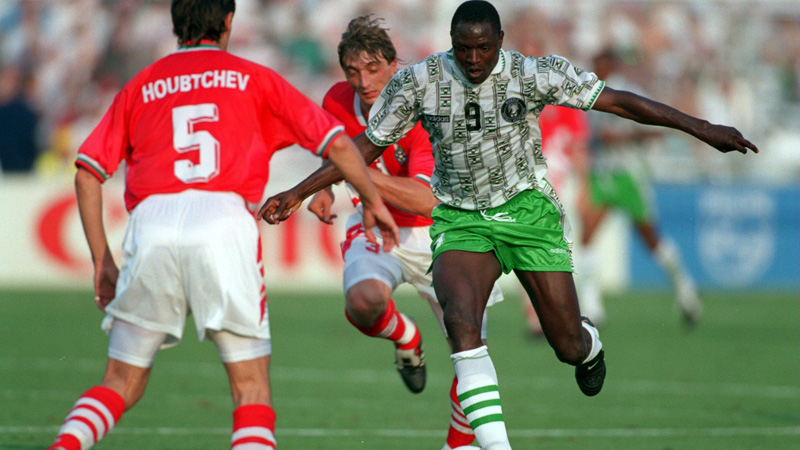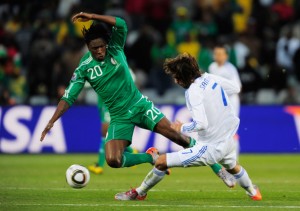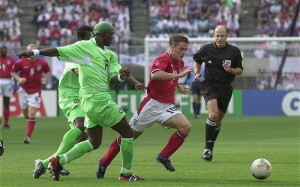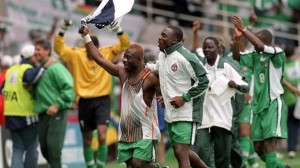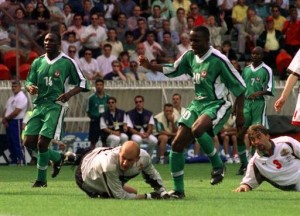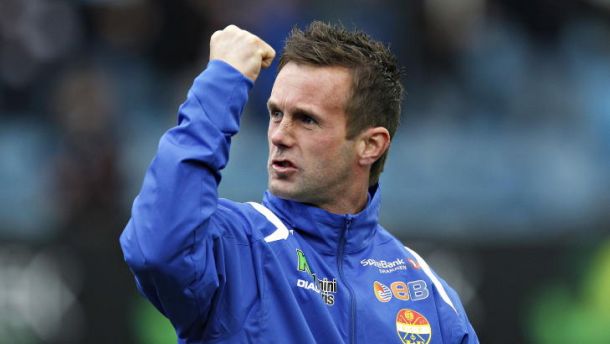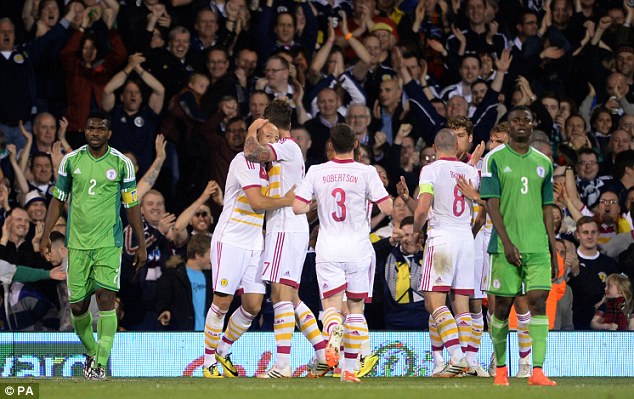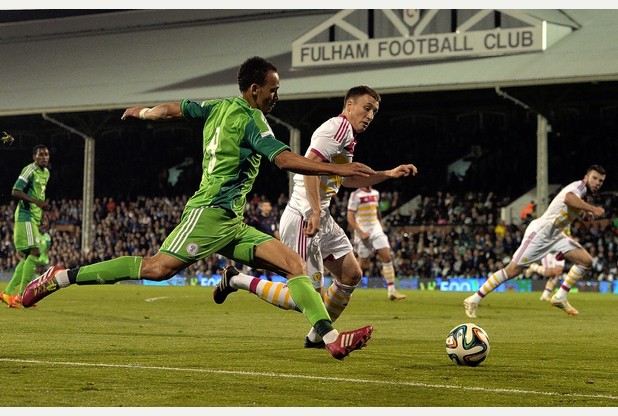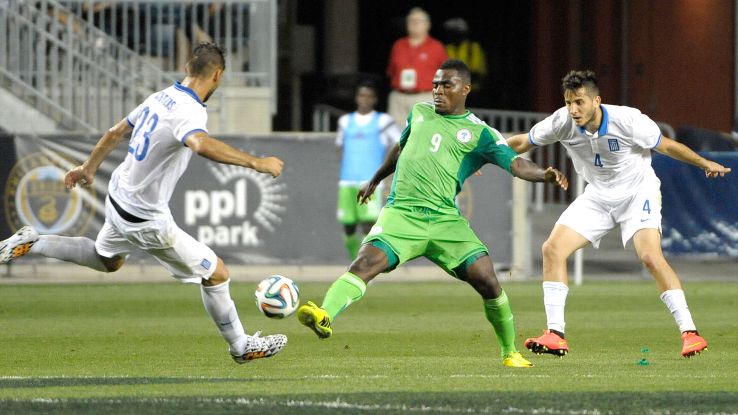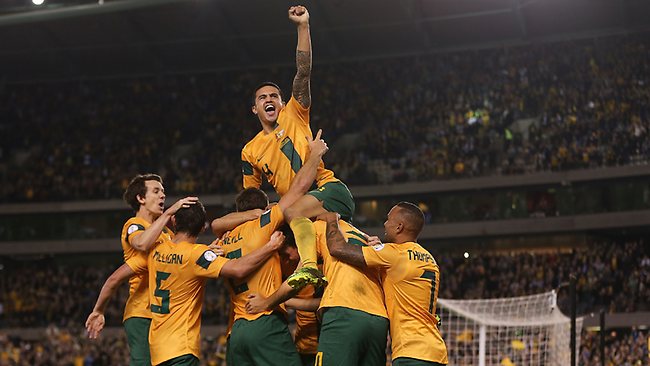This profit and loss account is an account in the books (FIFA record) of a business entity (Super Eagles) to which income (goals scored) and gains (matches won) are credited, and expenses (goals conceded) and losses (matches lost) debited, so as to show the net profit (favourable ranking) or loss (unfavourable ranking) over a given period (1994, 1998, 2002, and 2010 World Cups).
TheCable dug out its Principles of Accounting book to figures these details out.
Goals scored
In 14 World Cup games, the Super Eagles have scored 17 goals.
Advertisement
Of the 17 goals scored, five were scored between the 21st and 29th minute, representing 29 per cent; and it is the most likely time the Super Eagles are going to score.
There is a tie in second place between the 71st and 79th minute, and the 10th and 19th minute. Both have three goals, representing 18 per cent respectively.
Two goals were scored between 41st and 49th minute, representing 12 per cent each; while the four remaining goals were scored in the 8th, 10th, 55th, and 90th minute.
Advertisement
The Super Eagles have never scored a goal between the 30th and 39th minute, as well as between 80th and 89th minute.
Emmanuel Amuneke, Daniel Amokachi, and Ike Uche with two goals each, are Eagles’ most prolific marksmen at the World Cup.
Yakubu Aiyegbeni’s goal in the 2-2 draw against South Korea is the only penalty the team have won and scored.
Advertisement
In 14 World Cup games, the Super Eagles have conceded 21 goals.
Of the 21 goals conceded, three were conceded between the 1st and 9th minute, 20th and 29th, 40th and 49th, and 60th and 69th, representing 14 per cent each and 57 per cent cumulatively.
Two goals were conceded between the 30th and 39th minute, 70th and 79th, and 80th and 89th.
A goal each was conceded in the 12th and 102nd minute.
Advertisement
The team have conceded two goals in the 63rd minute — against Argentina (Gabriel Bastituta) and Sweden (Erik Larsson) at Korea/Japan 2002.
The team can concede goals at any time during a match.
Advertisement
What do Roberto Baggio, Claudio Caniggia, and Erik Larsson have in common? They have all scored two goals against the Eagles in a match; and each of those games ended 2-1.
Erik Larsson’s second goal in the 2-1 win is the only penalty the Super Eagles have conceded at the World Cup.
Advertisement
In 14 World Cup games, the Super Eagles have won four games, which is a mere 28.5 per cent.
Advertisement
Two of those victories were against Bulgaria. The southeastern European country lost 3-0 in 1994 (the team biggest win) and 1-0 in 1998 to the Super Eagles.
The other two wins were against Greece (2-0 in 1994) and Spain (3-2 in 1998).
In 14 World Cup games, the Super Eagles have lost eight games, representing 57 per cent.
Argentina remains the Super Eagles’ bogey team. The two-time African champions have lost three times in three games against the South Americans.
Greece took revenge on the earlier 0-2 loss to Nigeria in 1994 by winning 2-1 in 2002.
The Super Eagles lost on the two occasions they got to the second round. They lost to Italy 2-1 in 1994, and to Denmark 4-1 (the team’s heaviest defeat) in 1998.
1 – The least number of goals scored in a tournament, which was in 2002.
1 – The number of red cards received (Sani Kaita against Greece in 2010).
2 – The number of drawn games (0-0 against England in 2002 and 2-2 against South Korea in 2010).
7 – Most goals scored in a tournament, which was in 1994.
9 – The highest number of matches played at the World Cup, which belongs to Austin Okocha.
15 – The number of goals scored and conceded at the group stage in all four World Cups.
37 – The position of the team on the all-time World Cup log.
Extra+
The two times (1994 and 1998) Nigeria made it to the knockout stage, they topped their group.
When Nigeria topped the group at USA’94, Argentina came third.
When Argentina topped the group in South Africa 2010, Nigeria came last.
Add a comment
